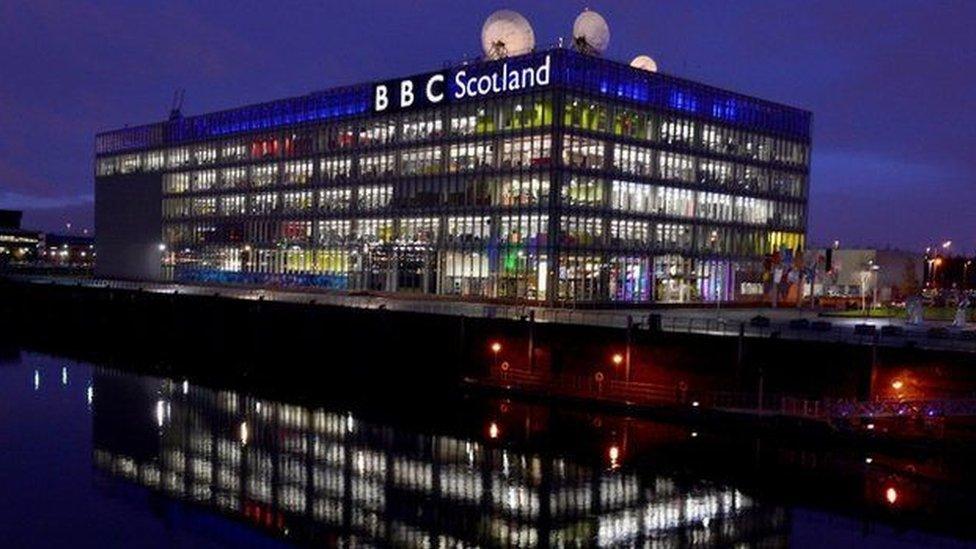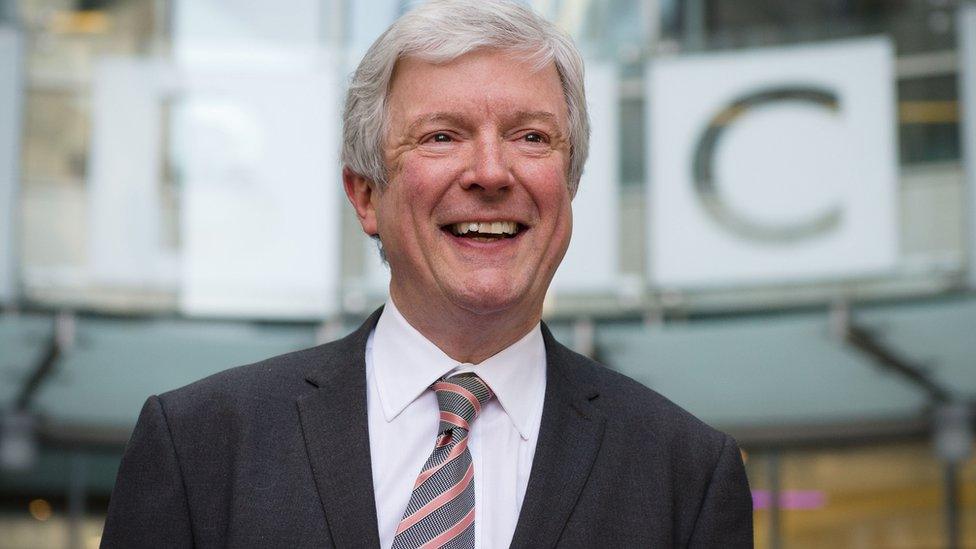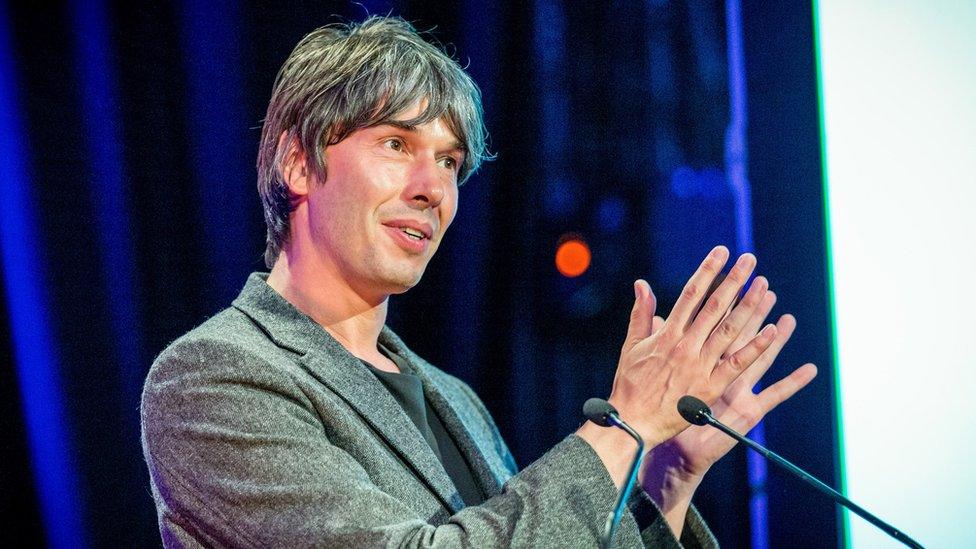BBC plans for Scotland 'short on ambition' says Fiona Hyslop
- Published

The Scottish government has said the BBC's proposals for its future are "far short on our ambitions for the broadcaster in Scotland".
Culture Secretary Fiona Hyslop made the comments after director general Tony Hall said the BBC needed to adapt to the changing face of British politics.
The BBC laid out its plans as part of negotiations with the government ahead of charter renewal in 2016.
Ms Hyslop said it was time for the BBC to take "bold and radical steps".
During his speech, Lord Hall said the BBC needed to "reconfigure our news coverage to meet the changing expectations of audiences across the UK".
The plans include:
A pool of reporters to provide impartial reporting on councils and public services that could be used by both the BBC and other local news outlets
A children's-only iPlayer - iPlay - featuring not just television programmes but blogs, podcasts, games and educational tools
Opening up iPlayer to "showcase" content from other broadcasters
New versions of BBC education, news and entertainment services in Scotland, Wales and Northern Ireland
"Significant investment" in the BBC World Service, including a daily news programme for North Korea and more broadcasts to Russia, India and the Middle East
A review of the BBC's website to make sure it is "distinctive with a stronger focus on online broadcast content"
Lord Hall said: "As the pace of devolution quickens, we will need to adapt our services on television, online and radio to ensure that they fully reflect or are able to report the increasingly divergent politics of the UK.
"We will never give up our role in reporting the whole of the UK back to itself, but we also have to recognise that news in some parts of the country simply does not apply in others.
"We want to look at how, within existing resources, we might better configure the BBC's news offering across the UK, and, by the way, how across the range of our services more broadly, we reflect the nations of the UK to the whole UK."
The SNP won 56 of the 59 available seats in Scotland at this year's general election, a landslide election victory which saw the Labour party suffering a near wipeout after holding most of the Westminster seats in Scotland since 1959.
At the Edinburgh Television Festival last month, First Minister Nicola Sturgeon called on the BBC to greatly enhance its Scottish presence.
She called for a new BBC Scotland TV channel and a second English-language radio station.

Tony Hall said the quickening pace of devolution meant the BBC had to adapt its services
Ms Hyslop said the BBC's response to the UK Government's green paper had "some merits" but fell short of the vision set out by the first minister last month.
The Scottish culture secretary said the changes were "long-overdue" and the BBC did not need a new charter to be able to put them in place.
She said: "It is time for the BBC to take bold and radical steps when it comes to winning back the approval of audiences in Scotland and reflecting the changing nature of the UK as a whole.
"This cannot be the limits of the BBC's ambitions for Scotland, and the Scottish government will use the charter renewal process to build support for a better and bolder BBC in Scotland that reflects our national life, our outlook on the world and supports the creation of content in Scotland."
Another of the plans announced by Lord all was for "a network of 100 public service reporters across the country", who will share work with local newspapers.
It did not find favour with the Scottish Newspaper Society, who labelled the proposal "a Trojan horse which will undermine long-established publications and destroy local news agencies".
"Instead of helping local news publishers, it would make the BBC even more powerful and would further concentrate coverage of news in the hands of the state-funded broadcaster," said its director John McLellan.
- Published7 September 2015
